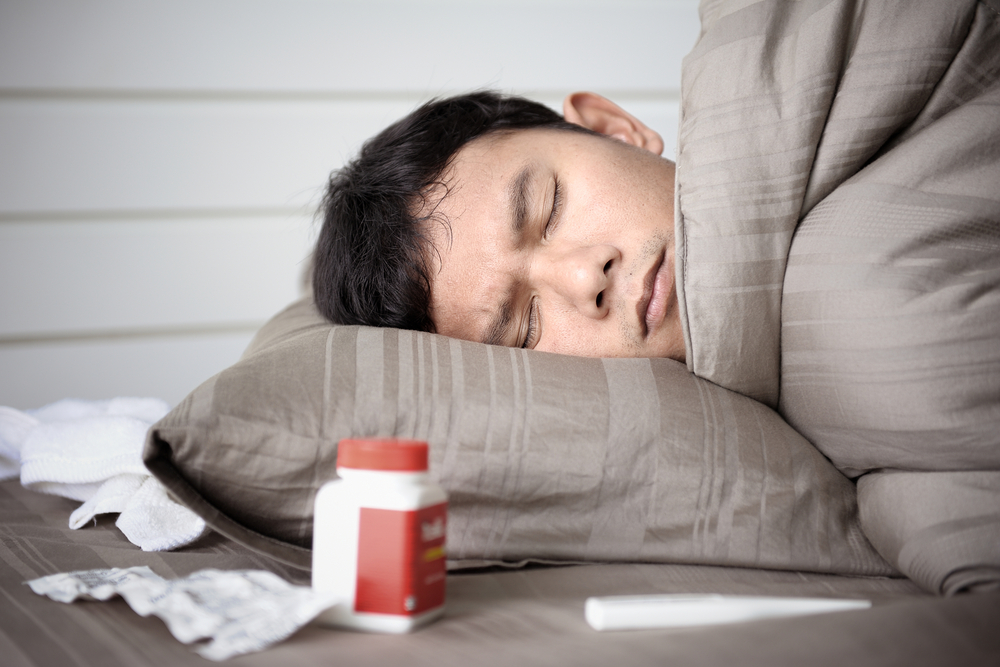Insomnia – An Overview
“My eyelids are heavy, but my thoughts are heavier.”
– Unknown
35% American adults do not have enough sleep as per the Center for Disease Control. This goes to show the extent of sleep depreciation, with consequences of obesity, hypertension, diabetes, heart diseases, and stress-induced sickness. Sleeping for seven hours is considered essential for health. Insomnia has three distinct types: difficulty in going to sleep, maintaining the sleep for the required duration and in case of disruption; the difficulty to go back to sleep.
The American Academy of Sleep Medicine is a body of sleep medicine professionals established in 1975, which gives the most comprehensive definition of insomnia as “the subjective feeling of difficulty in going to sleep, or in achieving the proper duration, consolidation, or quality of sleep in spite of congenial conditions, resulting in impairment in day time activities.”
How is insomnia diagnosed?

- People who are suffering from difficulty in sleeping three nights in a week for a minimum period of three months, which results in difficulties in their normal day time activities, are insomnia sufferers.
- There are three distinct characteristics in sleep difficulties: difficulty in falling asleep, sleeping continuously for the required duration, and difficulty in going back to sleep in case of interruptions.
What are the causes of insomnia?
- Chronic insomnia, normally, may have other underlying medical conditions and is generally a symptom rather than a disease itself.
- Commonly, Atopic eczema or other allergic conditions, arthritis, and back pain can be severe, especially during movements in sleep, mostly causing difficulty in sleeping continuously or going back to sleep after a break.
Who all are likely to suffer from chronic insomnia?
There are some risk factors that can increase the chances of suffering from sleep disturbances, and they may be in need of sleep aids for insomnia. People who face the following are at a risk of chronic insomnia:
- Very high levels of stress
- Emotional disturbances like anxiety, depression, interpersonal relation conflicts, financial worries, etc.
- Traveling across different time zones
- Lack of physical activity
- Working night shifts
- Underlying medical conditions like cardiovascular disorders, menopause, and obesity
What are the behavioral treatment options that offer best sleep aid for those suffering from insomnia?
- The basic approach to sleep aids for insomnia is to undergo a thorough medical examination, including psychological evaluation, to ascertain any underlying medical condition causing the insomnia and making sure that it is attended to.
- In case insomnia is a standalone case, it is handled by behavioral therapy. The first step is to educate the patient about sleep hygiene or the conditions that induce natural sleeping habits. The first thing is to sleep at a specific time every day, irrespective of whether it’s a weekend, holiday, or the likes. This helps the body induce sleep at the particular time.
- One of the best sleep aids for insomnia is to not spend time on bed other than when sleeping. Keeping the room dark, cool, and relaxed is important.
- Ensure that there is no caffeine consumption at least 6 hours before bedtime. One should not indulge in physical exercise or use computer, smartphone, etc., as it may increase tension and anxiety. Blue light is not very conducive to sleep production.
What are some medicinal treatments for insomnia?
- Prescription medications are of two groups: hypnotic and sedative medications. If taken without prescription, these sleep aids for insomnia may lead to serious complications like hallucinations, unawareness of what one is doing, abnormal behavior, etc.
- Another group is of medicines that increase GABA secretion in the brain. GABA is a neurotransmitter that produces sleep. These groups also have serious side effects.
- Over-the-counter drugs are low-dose antihistamines, which are the best over-the-counter sleep aids for insomnia. It is important to clear it with the doctor before taking an OTC, as it can result in serious effects at times. There are natural herbal products that induce sleep and do not become a habit. Some herbal preparations are enhanced with the addition of Melatonin.
- There is an FDA-approved device that uses proprietary wave forms to stimulate the brain to produce neurochemicals like serotonin and other chemicals that induce sleep. It is simple to use and takes 3–4 days for the effect to be felt. There is a money-back guarantee if returned within 30 days of purchase. It needs an authorization from a doctor for purchasing.


